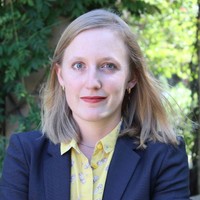Seraina A. Dual
Seminar Information

Sensor systems are poised to transform the delivery of health care enabling smart and connected medical treatments and services. Cardiovascular disease affects one-third of individuals worldwide – negatively impacting their quality of life, and resulting in a significant cost for society (economic cost of €210 billion/year). Although the last decade has seen tremendous advances in treatment options for patients with early cardiac disease, we are now witnessing an epidemic of heart failure with a rising incidence in the general population worldwide (2–7%). Prediction of the onset of the heart failure is crucial to initiate preventetive treatments. At the same time, we are witnessing the advent of digital health as an innovative technology that enables access to health data in real-time, not only through bedside monitors, but also from wearables and implantable devices. Addressing clinical needs, engineers can leverage this opportunity by combining sensors and algorithms into smart systems: Implantable sensors let us monitor heart health continuously allowing timely clinical intervention; Advanced signal processing and machine learning tools improve the sensitivity of imaging systems resolving detailed heart anatomy more automatically; Test rigs equipped with sensors help us to predict the interaction of medical devices with the cardiovascular system. In the future, sensor systems will combine information, communicate data to the clinician and the patient, and finally enable cure via artificial organs with integrated control systems. In this way, sensor systems provide access to a person’s health, thus facilitating early detection and timely clinical intervention in high risk patients with heart failure.
Seraina A Dual is currently an Assistant professor in the Department of Biomedical Engineering and Health systems at KTH Royal Institute of Technology in Stockholm. Dual trained as a Mechanical Engineer at the Federal Institute of Technology in Zurich, Switzerland (ETH Zurich) obtaining a Bachelor’s and Master's degree in Biomedical Engineering, Robotics and Control, and earned her PhD in the Product Development Group focusing on sensor systems for cardiovascular applications in the Zurich Heart Project. She conducts research through international collaborations with Stanford University, ETH Zurich, the German Heat Center in Berlin, Germany, and the St. Vincent’s Hospital Sydney, Australia. She has authored publications in prestigious journals across the fields of Medical Devices, Artificial Organs, Signal Processing, and MRI. Inspired by engineering she aims to enhance human health.
